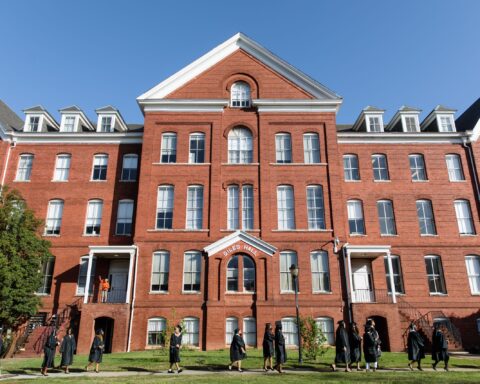By Morehouse College
Morehouse College, the nation’s only college dedicated to educating and developing men of color, tops the charts of the National Science Foundation (NSF) as the leading higher education institution producing Black male undergraduates that receive doctoral degrees. As of April 2022, NSF’s National Center for Science and Engineering Statistics Survey of Earned Doctorates confirms Morehouse as the primary producer with 218 Black male recipients awarded a doctorate degree between 2010 and 2020, 199 more than the second most leading institution.
“We believe that the liberal arts pedagogy, research opportunities, and professional growth experiences at Morehouse uniquely embrace the brilliance of men of color and empower to them to pursue – and reach— the summits of intellectual discovery,” says Dr. David A. Thomas, president of Morehouse College. “The obtainment of a doctoral degree by so many of our graduates is the true the manifestation of the thirst for knowledge that is the hallmark of a Morehouse man.”
Morehouse leads in Black male doctorate graduates for most academic areas including life sciences, physical sciences and earth sciences, mathematics and computer sciences, psychology and social sciences, education, humanities and the arts. The College’s doctorate recipients are initially prepared with a rigorous curriculum that focuses on leadership development, scholarship, research, and global awareness. Morehouse’s undergraduate experience prepares its graduates to be socially conscious servant leaders through interdisciplinary studies across its seven academic divisions.
“Morehouse has traditionally put a great deal on emphasis on excellence in scholarship, and more so recently as we have intentionally engaged students in research and scholarly work both in the classroom and beyond,” says Dr. John K. Haynes ‘64, Morehouse professor, former dean of the science and mathematics, and renowned biologist and researcher who has taught scores of students who’ve pursued doctorates during his almost 50 years in academia. “We believe that it is just as important to have minority leaders among those who generate new information as among physicians, entrepreneurs, politicians, and other professions.”





